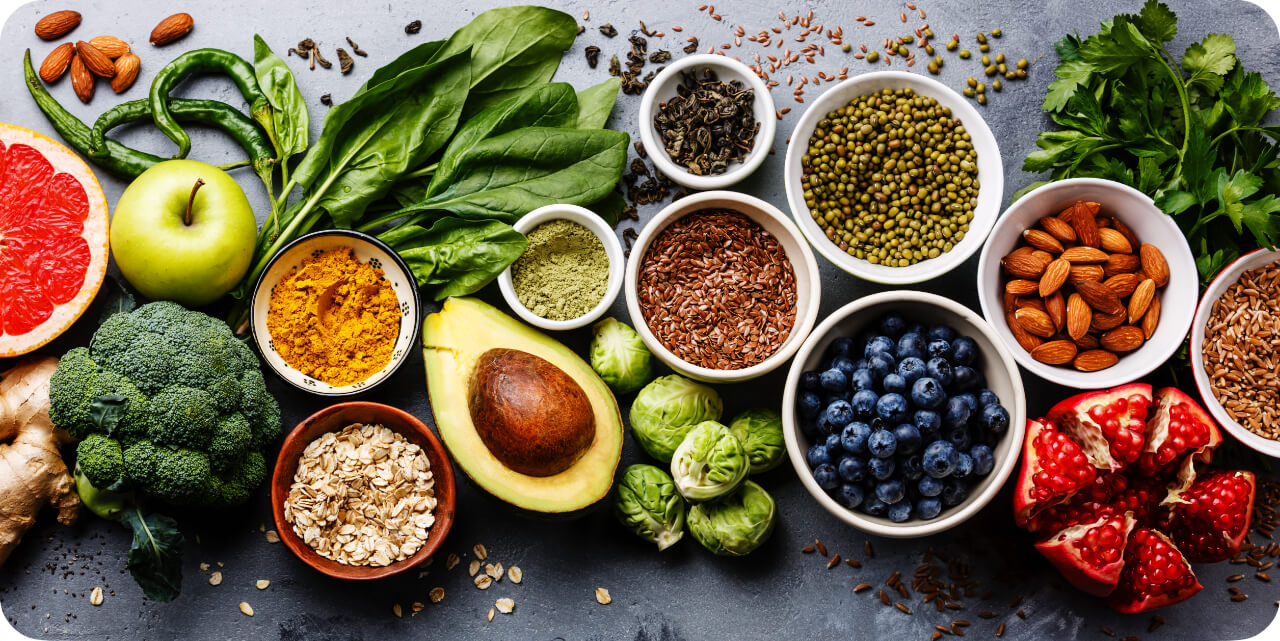Introduction
Did you know that your gut and brain are constantly communicating? It’s called the gut-brain axis, and it plays a vital role in your mental health. This connection shows that what you eat doesn’t just fuel your body; it can shape your mood, stress levels, and even cognitive function. In this article, we’ll dive into how you can harness the power of diet to support your mental health.
What is the Gut-Brain Axis?
The gut-brain axis is a complex communication network linking your gut and brain. This bidirectional pathway allows signals to travel between your digestive system and your central nervous system, impacting everything from mood to cognition. If you’ve ever had a “gut feeling” or butterflies in your stomach before a stressful event, you’ve experienced this connection firsthand.
The Role of Gut Microbiota
Your gut is home to trillions of bacteria, known as the gut microbiota, that play a crucial role in regulating brain function. These microorganisms produce neurotransmitters like serotonin, which affect mood and mental states. When the balance of good and bad bacteria in the gut is disrupted, it can lead to mental health issues like anxiety and depression.
How Diet Impacts Mental Health
What you eat influences your gut microbiome, and in turn, your brain health. A balanced diet rich in whole foods, fruits, vegetables, and healthy fats can promote a healthy gut and improve your mood. On the flip side, diets high in sugar, processed foods, and unhealthy fats can disrupt your gut bacteria, leading to poor mental health outcomes.
The Influence of Processed Foods on Mood
Highly processed foods are loaded with unhealthy fats, sugar, and additives that can wreak havoc on your gut. These foods often lead to inflammation, which is linked to mood disorders like anxiety and depression. Avoiding these foods and focusing on whole, unprocessed options can make a big difference in your mental wellbeing.
Probiotics and Prebiotics: The Mood Boosters
Probiotics are live bacteria that help maintain a healthy gut balance, while prebiotics are fibres that feed these good bacteria. Together, they can support mental health by reducing inflammation, boosting serotonin levels, and improving overall brain function. Foods rich in probiotics include yogurt, kefir, and sauerkraut, while prebiotics can be found in garlic, onions, and bananas.
Omega-3 Fatty Acids: Brain and Mood Support
Omega-3 fatty acids are essential fats found in fish, flaxseeds, and walnuts that support brain function and emotional health. These fats have been shown to reduce symptoms of depression and anxiety by improving brain cell communication. Including omega-3-rich foods in your diet can be a simple way to boost your mood.
The Impact of Sugar on Anxiety and Depression
High sugar consumption is linked to increased levels of anxiety and depression. Sugar causes spikes and crashes in blood sugar levels, which can lead to mood swings, irritability, and even fatigue. Reducing your intake of sugary foods and drinks can help stabilize your mood and reduce symptoms of anxiety.
Foods Rich in Antioxidants for Cognitive Function
Antioxidants help combat oxidative stress, which can damage brain cells and lead to cognitive decline. Foods rich in antioxidants like berries, dark chocolate, and leafy greens can protect your brain and improve mental clarity, while also promoting a positive mood.
Hydration and Mental Clarity
Dehydration can lead to confusion, fatigue, and even anxiety. Staying hydrated is crucial for maintaining mental clarity and cognitive function. Drinking enough water throughout the day supports your brain, ensuring you remain focused and calm.
Nutrients That Support Brain Health
Certain vitamins and minerals, such as vitamin D, B vitamins, and magnesium, are essential for mental health. Vitamin D boosts mood, B vitamins support brain energy, and magnesium helps reduce stress and anxiety. Incorporating these nutrients into your diet can significantly improve your mental wellbeing.
Night Night Supplement for Stress and Anxiety
Looking for a way to enhance your sleep and manage stress? The Night Night supplement from Ultra Nutrio is designed to help with both. This supplement contains natural ingredients that support relaxation, reduce anxiety, and promote restful sleep, making it a great addition to your mental health toolkit.
Practical Tips for a Gut-Healthy Diet
Want to support your gut-brain connection? Start by adding more fermented foods, fibre, and omega-3s to your diet. Make sure to eat plenty of colourful fruits and vegetables, and avoid processed foods. A balanced, gut-friendly diet can lead to better mental health and overall wellbeing.
Mental Health and Sleep: A Two-Way Street
Sleep plays a crucial role in mental health, and the gut-brain connection influences both. Poor sleep can disrupt gut bacteria, while an unhealthy gut can lead to sleep disturbances. Focusing on improving both your diet and sleep habits can create a positive cycle that benefits your mental health.
Conclusion
The gut-brain connection is a fascinating area of research that shows how deeply intertwined our diet is with our mental health. By making mindful choices about what we eat, we can positively influence our mood, reduce stress, and improve overall cognitive function. Incorporating gut-friendly foods, staying hydrated, and considering supplements like Night Night can lead to a healthier mind and body.
FAQs
1. How does the gut-brain connection affect mental health?
The gut-brain connection allows communication between the gut and brain, meaning that the health of your gut can directly influence your mood, cognition, and overall mental health.
2. What foods should I avoid for better mental health?
Avoid processed foods, refined sugars, and trans fats, as they can negatively impact gut health and contribute to mood disorders.
3. How can probiotics help with anxiety?
Probiotics support the balance of good bacteria in the gut, which can reduce inflammation and improve the production of mood-regulating neurotransmitters like serotonin.
4. What supplements can help with mental health?
Supplements like Night Night can help reduce stress, improve sleep, and support mental health by promoting relaxation and reducing anxiety.
5. How can I improve my sleep through diet?
Eating foods rich in magnesium, vitamin D, and antioxidants can support better sleep quality and overall mental wellbeing.
Related Posts
23/12/2024
The Link Between Sleep and Mental Health: How Night Night Helps
Ever feel like a bad night’s sleep turns your world upside down? That’s no coincidence. Sleep and mental health are…
11/12/2024
5-HTP: Supporting Mood and Sleep
Struggling with mood swings or restless nights? You're not alone. In today’s fast-paced world, maintaining emotional…
29/11/2024
Mood-Boosting Foods and Supplements for Better Mental Well-being
In our fast-paced world, maintaining mental well-being is more challenging yet more crucial than ever. Beyond lifestyle…
17/11/2024
How GABA Improves Sleep Quality and Relaxation
In today’s fast-paced world, many people struggle with achieving a restful night’s sleep. Anxiety, stress, and hectic…
05/11/2024
The Role of L-Theanine in Promoting Relaxation and Sleep
L-Theanine, an amino acid primarily found in tea leaves, has been celebrated for its unique ability to promote…
24/10/2024
How to Manage Stress Naturally with Supplements
Stress is an unavoidable part of life, but how we manage it can make all the difference in our mental and physical…
30/09/2024
The Role of Adaptogens in Reducing Stress and Anxiety
In today's fast-paced world, stress and anxiety are common challenges many of us face daily. While lifestyle changes…
18/09/2024
Top 7 Natural Supplements to Boost Your Mental Clarity
In today’s fast-paced world, maintaining mental clarity is more important than ever. Whether you’re juggling work…
06/09/2024
How Sleep Impacts Mental Health and Ways to Improve Both
We all know that sleep is essential, but did you know that it plays a crucial role in your mental health? A good…











